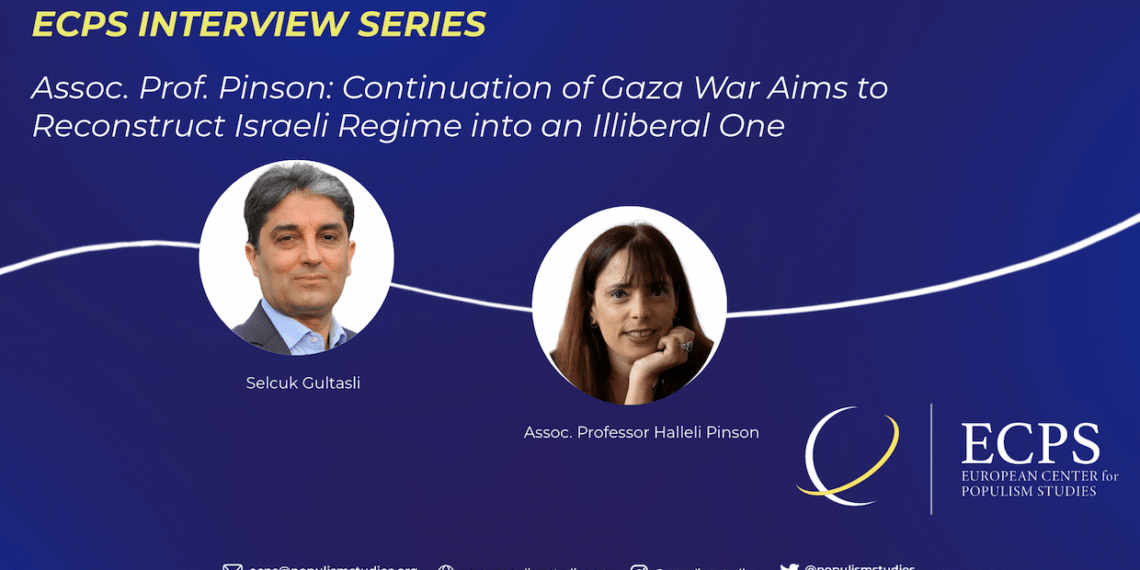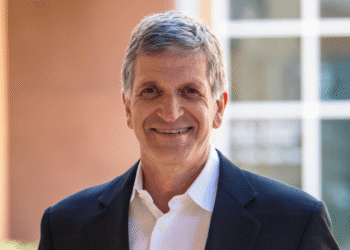In a wide-ranging ECPS interview, Ben-Gurion University scholar Halleli Pinson argues that Israel’s Gaza policy is intertwined with an illiberal turn at home. “The polarization we saw before October 7 around judicial reform,” she notes, “is now translated into how people understand the war and the hostages,” adding that “the continuation of the war serves this broader agenda… to reconstruct the Israeli regime into an illiberal one.”Dr. Pinson details how curricula sideline liberal democracy while NGOs and academics face a shrinking space for dissent. Media framings and social media echo chambers deepen an “epistemic polarization.” Though anti-war discourse is growing, she warns that animosities are hardening: “It may take a generation to shift the discourse toward a more liberal, mainstream orientation.”
Interview by Selcuk Gultasli
The ongoing Gaza war has not only reshaped regional geopolitics but has also profoundly transformed Israel’s political culture, educational discourse, and democratic institutions. In this exclusive interview with the European Center for Populism Studies (ECPS), Associate Professor Halleli Pinson, a political sociologist of education at Ben-Gurion University of the Negev, provides a compelling analysis of the interplay between right-wing populism, illiberalism, and knowledge production in Israel, revealing how the conflict intersects with broader ideological projects.
At the heart of her argument lies a critical assessment of the government’s use of the war to advance structural political changes. As Dr. Pinson observes, “The polarization that we experienced in the year and a half before October 7th around the judicial reform is, in a sense, translated into how people understand the government’s policy regarding the war and the hostages.” She highlights a direct link between the government’s attacks on democratic institutions — such as the Supreme Court and the Attorney General — and its broader populist strategy: “The continuation of the war serves this broader agenda, attempting, in a way, to reconstruct the Israeli regime into an illiberal one.”
For Dr. Pinson, this illiberal turn is deeply embedded in Israel’s educational and discursive transformation. Over the past decade and a half, she argues, populist discourse has profoundly reshaped curricula, civic education, and public understanding of democracy. Discussions of liberal values, multiculturalism, and human rights are increasingly sidelined, while “illiberal democratic models” are emphasized. As she explains, Israel is being redefined “as primarily Jewish first and democratic only when it aligns with that identity,” a shift that has normalized the erasure of the Green Line and reframed settlements as integral parts of Israel.
The interview also delves into the shrinking space for dissent in both schools and universities. NGOs like Breaking the Silence and other human rights groups are excluded from classrooms, while academics face growing pressures under proposed legislation that would allow universities to dismiss professors “accused of supporting terrorism” — a definition so vague, Dr. Pinson warns, that “saying that there is starvation in Gaza or standing with photographs of children who lost their lives could be considered as support for terrorism.”
Finally, Dr. Pinson reflects on Israel’s fractured society and the growing epistemic polarization intensified by the war. While public criticism of the government has increased, she is concerned about entrenched animosities: “The level of hatred being cultivated between camps is deeply concerning… I’m not very optimistic, and I believe it’s going to take a generation to shift the discourse toward a more liberal, mainstream orientation.”
This conversation offers an essential lens for understanding how the Gaza war intersects with Israel’s democratic backsliding, populist rhetoric, and societal divides.


